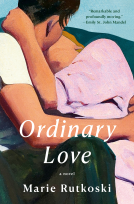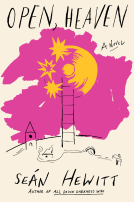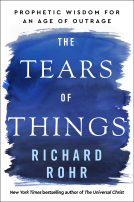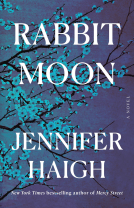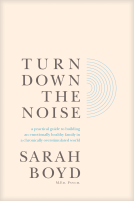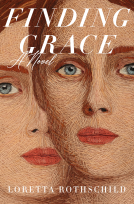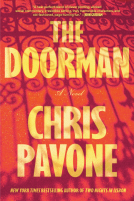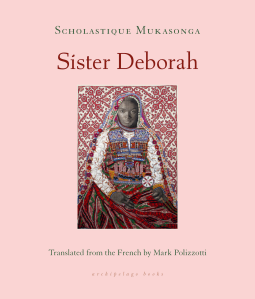
Sister Deborah
by Scholastique Mukasonga
This title was previously available on NetGalley and is now archived.
Send NetGalley books directly to your Kindle or Kindle app
1
To read on a Kindle or Kindle app, please add kindle@netgalley.com as an approved email address to receive files in your Amazon account. Click here for step-by-step instructions.
2
Also find your Kindle email address within your Amazon account, and enter it here.
Pub Date Oct 29 2024 | Archive Date Sep 15 2024
Talking about this book? Use #SisterDeborah #NetGalley. More hashtag tips!
Description
“In sentences of great beauty and restraint, Mukasonga rescues a million souls from the collective noun ‘genocide,’ returning them to us as individual human beings.” — Zadie Smith
In a 4-part narrative brimming with historical asides, alluring anecdotes, and murky questions left in the margins of colonial records, Sister Deborah heralds “a life that is more alive” as it explores the tensions and myths of Rwanda’s past.
When time-worn ancestral remedies fail to heal young Ikirezi’s maladies, she’s rushed to the Rwandan hillsides. From her termite perch under the coral tree, health blooms under Sister Deborah’s hands. Women bear their breasts to the rising sun as men under thatched roofs stand, “stunned and impotent before this female fury.”
Now grown, Ikirezi unearths the truth of Sister Deborah’s passage from America to 1930s Rwanda and the mystery surrounding her sudden departure. In colonial records, Sister Deborah is a “pathogen,” an “incident.” Who is the keeper of truth, Ikirezi impels us to ask, Who stands at the threshold of memory? Did we dance? Did she heal? Did we look to the sky with wonder? Ikirezi writes on, pulling Sister Deborah out from the archive, inscribing her with breath.
A beautiful novel that works in the slippages of history, Sister Deborah at its core is a story of what happens when women — black women and girls — seek the truth by any means.
Advance Praise
"The narrators of Sister Deborah turn and tilt the story like a prism until, by Mukansonga’s light, the versions and legends, tellings and retellings become many tiny brilliant rainbows.”
—Ama Codjoe, author of Bluest Nude
"Scholastique Mukasonga is not only one of the most important Francophone novelists writing today but a storyteller of rare gifts, and Sister Deborah, expertly translated by Mark Polizzotti confirms this. Trenchant in its critique of the nexus between colonialism and religion, compelling in its feminist and decolonial perspective, it marks another gift by Mukasonga for English-language readers."
—John Keene
"Award-winning French Rwandan novelist Mukasonga evokes her country’s tumultuous history in a lyrical, allegorical narrative, translated by Polizzotti, set in the 1930s, when white Catholic missionaries proselytized to a population already steeped in myths . . . A haunting tale."
—Kirkus Reviews
Available Editions
| EDITION | Other Format |
| ISBN | 9781953861948 |
| PRICE | $19.00 (USD) |
| PAGES | 200 |
Available on NetGalley
Featured Reviews
 Ana María A, Reviewer
Ana María A, Reviewer
A young girl is cured by a mysterious preacher-healer woman, and she spends the rest of her life trying to understand who this woman is, and what role is she supposed to fulfill in the world. Sister Deborah is an African-American missionary that doesn't seem to be what we expect from a missionary, starting her own syncretic religious movement, which of course is not seen kindly by the authorities. She becomes, despite not being the leader of their group, a sort of spiritual beacon for the women around her, who she encourages to think and meditate, to the chagrin of the men of the community. Sister Deborah also promises the coming of a new messiah, this time a Black woman who will create a sort of feminist realm. All this time, the narrator, young Ikirezi, follows Sister Deborah's journey, while at the same time emabrking on her own. After losing sight of the woman, Ikirezi finishes her studies and travels to the US, becoming a professor of Anthropology and an expert in African Studies, which also helps bring Sister Deborah's whereabouts to her attention once again.
It's a fascinanting exploration of the ways in which colonialism affected spiritual and religious practices, as well as how African Americans's expectations of people in Africa is also created through a sort of colonialist/idealistic perspective. Mukasonga's prose is clear and
elegant, showing the narrator's growth and her understanding of Sister Deborah's beliefs and position in the world changing through the years. It's a very short novel, but manages to pack so many interesting topics that it will be well worth a second and third readings.
I received a review copy via NetGalley, so thanks to the publishers for allowing me to read this in advance.
Thank you NetGalley and Archipelago for an ARC of this book.
This book is one I will be thinking about for days to come after finishing. This is a novel about the sacred role of women in Rwandan, and specifically how mythic traditions interact with present societal norms.
The prose style and translation worked really well together to deliver a contemplative and moving narrative. While this book is influenced by the political history of Rwanda, the plot feels rather spare so the character and societal development has the opportunity to shine.
I would definitely recommend this book to those looking for books which explore the roles and limitations of women within society.
The story begins with Ikirezi, a young Rwandan woman, who was healed as a child by Sister Deborah, a healer with mystical powers coming from the Spirit. She recalls what she can remember about this figure, and later on in life, comes to Rwanda in search of the truth about Deborah.
Sister Deborah is a short but strong novel discovering the colonialism, christening and feminism in Rwanda on the verge of 19-20 centuries.
The novel has four chapters divided by the main events among which the first turned out to be confusing to me with all the spirits’ names, society ladder terms in Kinyarwanda and multiple narratives about the characters, the village. I lacked the knowledge of Rwanda, its culture and the history, so to fill out the gap I googled what I could to understand the story’s background on a deeper level. This effort helped immensely and I could navigate Sister Deborah’s story easily.
While reading, I had a feeling that the story wasn’t created by Scholastique Mukasonga but retold what she witnessed herself. I admire such writing skills as not everyone is capable of it.
I found the novel to be plot-driven however Sister Deborah herself developed dramatically—we follow her from childhood in the US to adolescence and adulthood in Rwanda exploring the painful truths of life with her.
Sister Deborah is for those who love exploring new cultures, observing their challenges throughout history; for those who love mystic stories, and strong female characters. I should also mention the depth of baptism evolved in the plot as it plays a major key in its development, so if you’re triggered by religion, Sister Deborah might not be a right fit for you.
I’m grateful to Archipelago Books for providing an early copy of Sister Deborah via NetGalley. It was a pleasure getting acquainted with Scholastique Mukasonga’s work. Sister Deborah’s English edition will be released on October 29.
The one we are waiting for will not come on a cloud. Furthermore, he is not a he, but a she, a Black woman who will come from the earth, to paraphrase Sister Deborah’s prophecy in the novel of that name, written by French-Rwandan author Scholastique Mukasonga and translated from the French by Mark Polizzotti. Any novel that explores this idea within such a specific cultural context deserves 5 stars (in my opinion), even if the prose seems sometimes to meander (again from my particular Western perspective). After her stint as Sister Deborah, the spirit-filled prophetess becomes Mama Nganga, with her healing powers and dedication to women and children still intact, but now outside the church’s protection. She has become, in short, a witch doctor or sorceress. All of this is discovered and told from the perspective of Ikirezi, a young girl healed by Sister Deborah in the early days (1930’s) who then goes on to become a Ph.D. in African Studies, with a passion for unearthing the truth about her “savior.” With its lovely cadence and near mythic overtones, this book is a gift to a world still ravaged by the effects of colonialism and religious proselytizing.
With thanks to NetGalley and Archipelago Books for an ARC of this book in exchange for an honest review.
 Reviewer 1091336
Reviewer 1091336
Rwanda, in my dreams, is a land of green beauty, proud and resilient people, and majestic great apes. I long for the day I can travel there to see it for myself. Until then, though, I turn regularly to the wondrous rendering of Scholastique Mukasonga. She never disappoints, and this story is no exception. This brief, spellbinding novel brings to life everything I love most in a story - mysticism, feminism, history, and the search for truth and how that concept changed through time. As always, Mukasonga exposes the cost of colonialism on a culture and a people. It's done perfectly. What a treasure.
